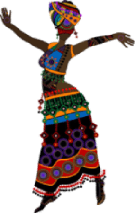The mid-20th century was when African-American entertainers became sought-after on casino stages. Although this was first met with racial segregation, the talent of these artists eventually broke through these barriers. Below are some top stars who graced casino stages, especially those in Las Vegas:
- Nat King Cole: Nat was one of the biggest stars of the 20th century. He had a smooth voice and sophisticated style that made him a popular figure in gambling rooms during the 1950s. Due to Nat King Cole's charm, he was able to bridge racial divides and open doors for future black entertainers.
- Sammy Davis Jr.: Next in line as an esteemed member of the black entertainers community was Sammy Davis. He was a member of the iconic Rat Pack, which included Frank Sinatra and Dean Martin, after which he became famous for his versatility as a singer, dancer, actor, and comedian.
- Lena Horne: Lena was an elegant singer who dazzled audiences with her live performances in nightclubs and casinos. She was well-known as a glamorous entertainer in her era and was especially famous for her signature song, "Stormy Weather."

